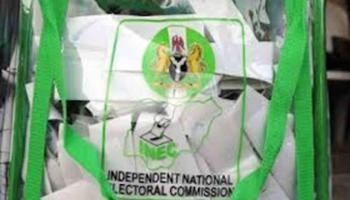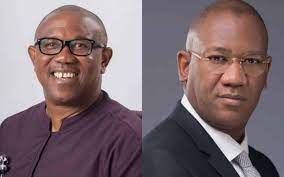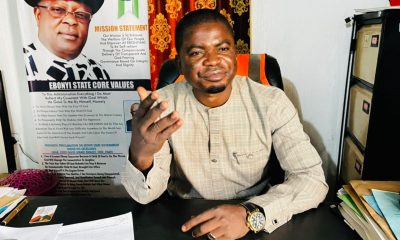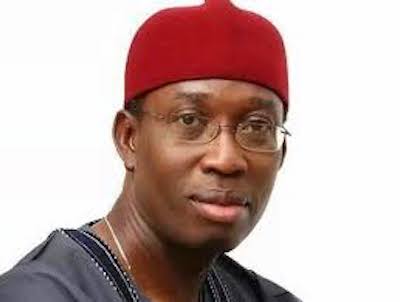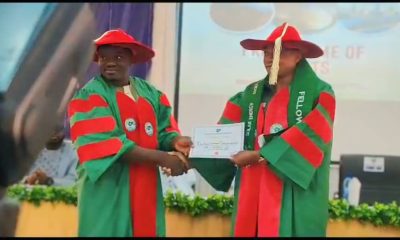Uncategorized
2023: Beware Ye Masquerade Watchers
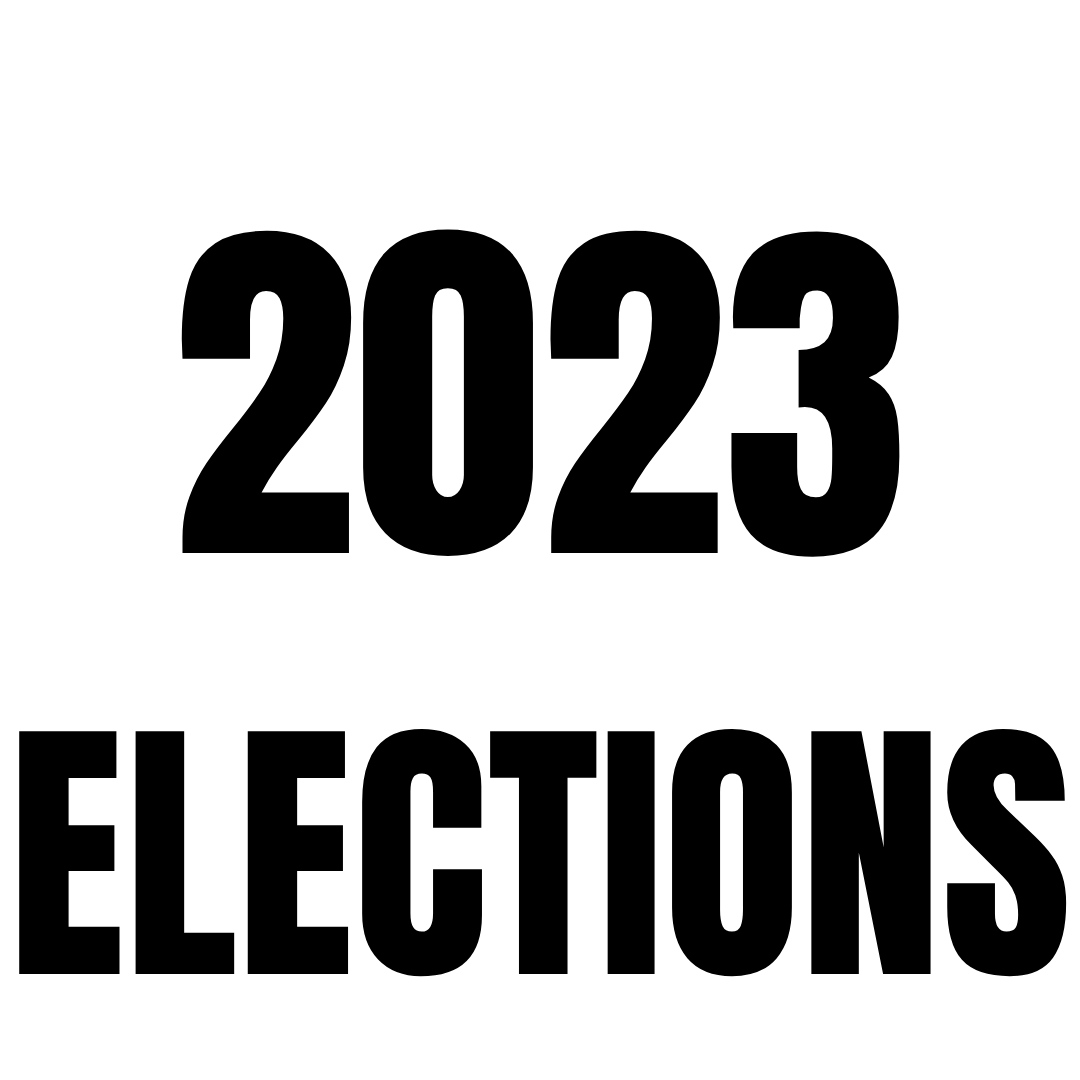
By Gift Worlu
I am a regular reader of my friend Dr Dakuku Adol Peterside’s weekly column. His interesting offering of January 17, 2022 titled “2023: Where are the masquerades” took me down memory lane to my childhood days when I wore and decorated masquerades in my Choba village as it then was, in the company of now entertainment icon Julius D’Genius Agwu and other young men.
Dr Peterside, in straightforward language, discussed the socio-cultural importance of masquerades and shared his general knowledge of ‘masquerades’ as an Opobo-Ijaw man, and likened politicians to ‘masquerades’, vide: “As the drumbeat of the 2023 election dance started, we have seen big “political masquerades “coming out to declare their interest in the struggle for power and relevance.
Across party lines, powerful politicians likened to big masquerades, and their cohorts are showcasing introductory and essential aspects of their election dance and using both old and novel gimmicks to make known their interest in the presidency of Nigeria.”This piece lends a voice to the pungent views of Dr Peterside on the qualities masquerade watchers (voters) should look out for in masquerades (politicians) before giving them gifts (votes) and deciding on the best masquerade (the President). Masquerades are useless without people watching them, and they enjoy their displays, cheer them up and present gifts, and choose the best masquerade for the season. And this is where this whole masquerade analogy makes much sense. As we watch the masquerades display on behalf of themselves and those that decorated them, we must critically assess them, cheer up those with skilled dance steps and then make up our minds on those that will get our votes. What follows are essential qualities that should guide our choice and why.
President Buhari would have led or ruled Nigeria for eight years by next year. Opinion about his stewardship is dichotomously split into binary opposites. Some say he did well, but many, including yours faithfully, believe he failed so disappointingly and woefully. I feel Nigerians are more divided, hungrier, angrier, and hopeless today than in 2015 when he took the reins of power from a “clueless” President Jonathan.
In a recent TV interview, the President admitted that he failed the nation, blaming his age and health. There is no doubt that the suffering of Nigerians worsened and continues under Buhari’s watch. Thus, Nigerians do not want excuses or blame games ever again. All they want is a good and trustworthy leader who, like Moses, will lead the children of Israel out of Egypt into the promised land of peace, justice, unity, and prosperity. They want to eat the fruit of the labour of their hero’s past – a land that is bound in freedom, peace, and harmony.
2022 is the best time for candidates to begin indicating their interest in running for the President of the Federal Republic of Nigeria and convincing the people of their capacity to deliver if given the job. Besides, it provides Nigerians ample time to ask questions and examine the candidates, dig deep into their personality traits, leadership experience, track records of achievement, and an unflinching desire to serve Nigerians for the good of all.
I share the views of Dr Peterside that to lead Nigeria today, you must be a visionary who can guide Nigerians to articulate a national vision. Vision is everything, and it gives direction and ignites thinking about reaching the desired destination. With a vision, you can see the end from the beginning and everything in-between. The issue is, where do we want Nigeria to be in, say, the next 5, 10, 50 years, and how do we intend to get there? What challenges and opportunities lie ahead, and what decisions/actions must we take to get there? What will happen should we fail to redirect our path away from the dangerous road we have been traveling since independence?
We urgently need a strong enough vision to permanently scare away men and women of little learning and questionable characters that ubiquitously dominate Nigeria’s political firmament. I mean men and women that know nothing but how to use the money to get power and then use power to get more money. Take or loathe it, the violence and indiscipline we see in Nigeria today is a direct consequence of the violence, indiscipline and all the shenanigans that successive governments reward, wittingly or unwittingly.
Character, capacity, and competence are other qualities we require from the candidates. Nigeria is richly blessed with good people. Unfortunately, very few are in our dirty and deadly politics. Whereas politics is a fine art and democracy is one of humanity’s greatest inventions, Nigerian politicians have failed to deliver the dividends of democracy to the people. To lead complex Nigeria, we need a leader who can generate higher internal complexity to take advantage of the opportunities in an ever dynamic and uncertain world. Ross Ashby’s law of requisite variety states that as variety proliferates, “only variety can absorb variety.” Eneke the bird, according to Chinua Achebe, says, since men have learnt to shoot without missing, it has learnt to fly without perching.
Nigeria faces many problems that pose an existential threat to our corporate unity and progress. So we need a leader who has the requisite tools, knowledge and skills. This period is no time for trial and error, as 2023 is a make-or-mar for Nigeria. We need a leader with the capacity to change the cultural landscape. Before we talk about infrastructure, economy, and insecurity, we need to address the issue of our culture and values. Nigerians and non-Nigerians alike see and describe the country with such derogatory words as a shithole, zoo, poverty capital, irredeemable, hopeless, useless, unhappiness capital, jungle, failed, ghetto, rogue state.
Many Nigerians do not trust their leaders. The leader must also love Nigeria, be mentally strong and emotionally stable, be ready to deny self and die for Nigeria.
Nigeria’s next President needs courage and empathy for the people. These are unique qualities that only very few persons have. Principalities and powers in high and low places have long existed in Nigeria. We hear of cabals, cartels and untouchables that appear more powerful than government at all levels – not to mention drug barons, human traffickers, oil bunkers, kidnappers, armed and pen robbers, “yahoo yahoo”, separatists, economic saboteurs, militants, “agberos”, and bandits. They are in and outside government and literarily hold government and official’s hostage. President Jonathan said after leaving office that he was “caged.” Segun Adeniyi and Reuben Abati wrote about “spirits” in Aso Villa that turn “good men” into bad. Nigeria needs a courageous and audaciously bold leader to step on toes (big and small) and be able to rescue Nigeria from these principalities and powers. The president must connect with the people and empathize with their feeling and conditions in the country.
It is time Nigeria elected a president with the requisite experience and education. Anyone who aspires to lead Nigeria needs real experience and proper education, up to at least first degree or its equivalent. I state this opinion without prejudicing the Not-too-young-to-run Act 2018 (that allows anyone that has reached 35 years of age to vie for the office of President and governor in Nigeria). And Chapter VI, Part I, Section 131 of the constitution (which states that a person may be qualified for election into the office of the President if educated up to at least School Certificate level or its equivalent). Education at the School Certificate level cannot give the knowledge and skills needed to function effectively in the most critical office in the country today. Experience also matters. By experience, I mean performance in, not tenure of office. In Nigerian politics, we reward bad performance with higher office.
To make the much-needed progress in Nigerian politics, we must kill the excessive ego, greed, insensitivity, deceit, and ignorance that afflict leaders and the led’s ignorance, indifference, helplessness, and gullibility. Leadership is central to the success or failure of Nigeria. Leaders provide direction, make, and execute decisions, and inspire the people to reach their full potential. They do so through their thoughts, words, and actions. Leaders think about the past but worry more about the present and future. According to management guru Peter Drucker, “the best way to predict the future is to invent it”.
I have two major worries about 2023 and Nigeria. First, Nigeria is a multi-party democracy, and one must belong to a political party to aspire for political leadership. Sadly, our parties are not wired to field people because they have the vision and capacity to solve problems but because they can win an election. I pray that our two major political parties do not leave us with the devil’s alternative – where neither candidate has leadership qualities, but we must choose a lesser devil because our choices are limited.
We must not change failed leaders without changing the conditions that made them fail. Replacing one incompetent person with another equals what the late Afrobeat maestro Fela Kuti calls “perambulation”- moving but remaining in the same place. The good news is, the Nigeria of our dreams is possible. It only calls for Nigerians, especially the youth, to stop complaining and start acting right- join political parties and cause changes in their modus operandi by insisting on internal democracy and issue-based politics—enough of empty political rhetoric and demagoguery. We have the power in our PVCs, and let’s use it wisely.
Uncategorized
Don’t Diminish Your Influence by Your Actions, Shehu Sani Tells NASS Members

A former member of the Senate, Shehu Sani, has cautioned the National Assembly against allowing its influence to be diminished by its actions.
Sani stated this while speaking at the opening of the National Assembly Legislative Aides’ Forum (NASSLAF) Week on Tuesday in Abuja.
The pro-democracy activist also urged the legislators to selflessly live up to their responsibilities, for the good of the country.
According to him, a subservient posture by the legislature is not in the interest of the country, warning that such can impede good governance and undermine democracy.
Sani compared the current national assembly with the Eighth Assembly, led by Sen.
Bukola Saraki, praising it (Eighth Assembly) for standing firm against executive’s overreach.He observed, with dismay, that the powers of the national assembly appeared to be eroded with time.
“In our time, it was unthinkable for heads of MDAs to ignore our summons. They understood the gravity of our oversight functions,” he said.
Sani warned that the current assembly risked becoming a “rubber stamp” for the executive, sacrificing its independence and weakening democratic checks and balances.
Sani, therefore, cautioned the lawmakers against prioritising their personal gains over their constitutional responsibilities.
“This institution needs respect. If you turn yourselves into stooges, you will lose that respect. Our era defended legislative independence, but it came at a cost,” he said.
The former senator further stated that their insistence on doing the right thing birthed frosty relationships with the executive and caused delay in bills’ passage, warning that excessive cooperation was dangerous, as it could breed tyranny.
Sani cited instances where heads of MDAs openly challenged lawmakers during oversight functions, a behaviour which, he said, would not have been tolerated by previous assemblies.
“The senate president must ensure that nominees for appointments and executive proposals undergo serious scrutiny. This is not a place for automatic approval,” he stated.
Sani reminded the lawmakers that their primary duty was to serve Nigerians, not the presidency.
Sani also acknowledged what he called the vital but often over-looked roles of legislative aides, describing them as the backbone of the legislature, instrumental to drafting laws and policies for the country’s governance. (NAN)
Uncategorized
Court Remands Man, 50, for Alleged Unlawful Possession of Gun

An Iyaganku Magistrates’ Court, Ibadan, on Tuesday remanded a 50-year-old man, Ismaila Aborode, in a correctional facility for allegedly being in possession of a gun, life and expended cartridges.
Aborode, whose address was not provided, was charged with unlawful possession of firearms.
The Magistrate, Mrs Gladys Oladele did not take the plea of the defendant for want of jurisdiction.
She directed the police to return the casefile to the Director of Public Prosecution (DPP) for legal advice.
She adjourned the case until Jan. 7, 2025, for mention.
The Prosecutor, Sgt. Samuel Owolabi told the court that the defendant allegedly committed the offence on Nov.
30, about 5.00 p.m, in Olede area of Ibadan.Owolabi said the defendant unlawfully possessed one locally made double barrel gun, one life cartridge and one expended cartridge, without lawful authority.
He said the offence contravened Section 3 of the Robbery and Firearms Laws of Nigeria, 2004. (NAN)
Uncategorized
Police Trust Fund Begins Construction of Divisional Station in Kogi

From Joseph Amedu, Lokoja
The Nigerian Police Trust Fund has commenced the construction of a modern Divisional Police station to enhance the security of Ekin-Adde community in Ijumu Local Government area (LGA) of Kogi.
The Executive Secretary, the Nigerian Police Trust Fund, Alh.
Mohammed Seidu, who performed the Groundbreaking over the weekend in Ekinrin-Adde, said the project would enable police personnel to have a good working environment towards a more secure society.According to him, Kogi is strategically located at the Centre of Nigeria and Ijumu LGA borders four States, and it is key to locate such a divisional station in the area.
He commended the Inspector General of Police (IGP), Kayode Egbetokun for his continued support in the agency’s efforts to strengthen and provide better welfare and good working conditions for the Nigerian Police.
This, he said, had been enabling the police personnel to perform effectively in protecting the lives and property of the people.
He assured that such a project would be relocated nationwide across the 36 States of the federation including FCT.
Seidu urged the contractor to do a quality job and ensure strict compliance with the specified standard, and deliver the project within the timeframe of four months.
In his remarks, the Kogi Commissioner of Police, Bethrand Onuoha said the command was happy for the gigantic project as it would take security closer to the people at the grassroots.
“You can see that this area actually requires more security presence, and when this project is completed it will attract larger personnel to this place.
“A good working and enabling environment will bring out the best in our personnel. On our side, we are going to redouble our efforts to make sure this area is safe and secured,” Onuoha said.
The CP stressed that the police and other security agencies are committed to doing their best to make sure that Kogi remains safe especially during this festive season.
The Chairman of Ijumu LGA, Alh. Haruna Ibrahim, commended the police trust fund for the gesture, and promised to support and create an enabling environment for the success of the project.
In his address, the Olu-Ade of Ekin-Adde, HRM, Oba Anthony Bamigbaiye commended the police trust fund for the gesture, saying it was a thing that the community had been yearning for.
The royal father noted that the community with over 25,000 populations had only one policeman to secure the entire community.
He stressed that the divisional station would foster economic development and security of lives and property of the people in his domain and the entire Ijumu LGA.
The traditional ruler specifically appreciated the Executive Secretary of the police trust fund being an indigene of the community for facilitating the project to boost the security of lives and property of the people.
The Project Contractor, Alh. Toyin Abubakar of RASWAS Nig. Ltd promised to execute a quality job and delivered within the timeframe by the end of March 2025



